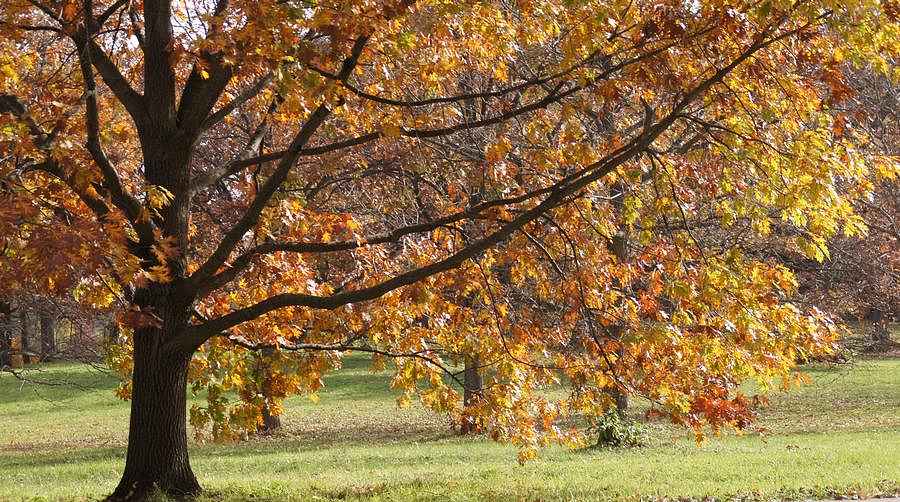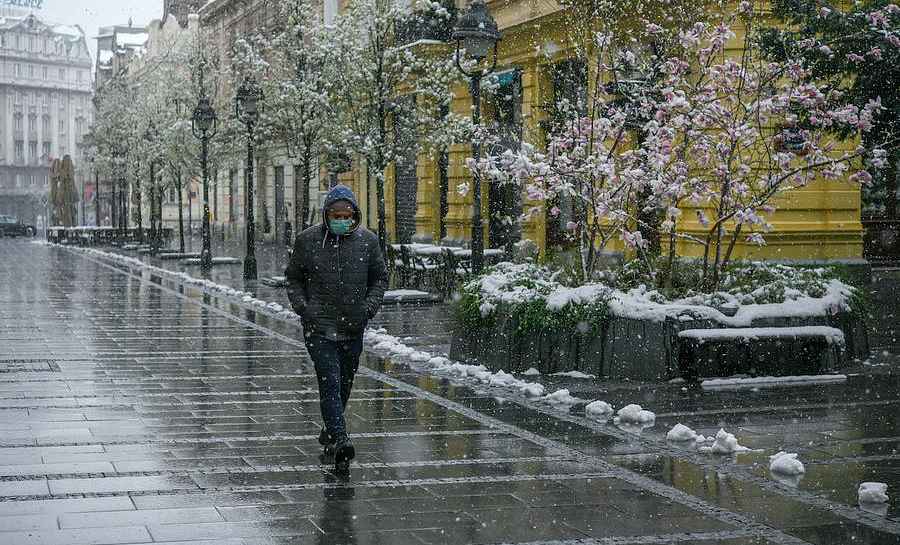





See listing of Recent and Most Popular articles on the Home Page
My World
Category: Health & Wellness / Topics: COVID-19 • Current Events, News • News • Wellness
Dreading a Dark Winter Lockdown
by David Robson / The Guardian
Posted: January 3, 2021
Think like a Norwegian, with a mindset that helps combat the long polar night…
Editor's Note: As a follow-up to this week's article "Unprecedented, Not!," this article addresses the feeling many people will have that the winter of the COVID-19 pandemic is unprecedented. Perhaps, but as David Robson points out, there are lessons to be learned from people who have experience with something similar—"the polar night." And for them it happens every year. Following an excerpt of the main points from the beginning of the article, you can follow a link to read the rest.
Studies show people living in the Arctic Circle are armed with a mindset that helps combat the long ‘polar night.’ It might come in handy for us all…
When Kari Leibowitz first arrived in the Norwegian city of Tromsø, she was both intrigued by, and fearful of, the approaching winter. Two hundred miles north of the Arctic Circle, the city does not see the sun from mid-November to mid-January. It was a far cry from the state of New Jersey, where she had grown up, or Stanford, California, where she had been studying before travelling to Norway.
As a health psychologist, Leibowitz’s aim was to understand the ways that Tromsø’s citizens coped with the long “polar night”. In many countries, the short days of winter are thought to cause lethargy and low mood, resulting in “seasonal affective disorder” (SAD). This is sometimes assumed to have a purely biological basis – levels of mood-regulating neurotransmitters such as serotonin are generally lower in winter than in summer, and last week a study suggested that people with more neurotic personalities are particularly susceptible to low winter moods. SAD is often treated using standard antidepressant drugs, as well as psychotherapies.
During the darkest periods of the polar night, Tromsø only receives two to three hours of indirect sunlight, shining into the sky from below the horizon. Yet its inhabitants do not show the kind of wintertime depression you might expect of a city cast in darkness. One study by May Trude Johnsen at the University of Tromsø found that the citizens’ wellbeing barely changed across the year. Their sleep was a bit more disturbed without the daily rhythm of the rising and setting sun, but they reported no increase in mental distress during the winter.
So what’s their secret? Of the many potential explanations, Leibowitz’s work suggests that one vital component may be a particular “mindset” that arms the citizens against the stresses of the long polar night.
These lessons could not be more timely. We may not live in the far north, but many of us in Europe and the US find winter to be the cruellest of all seasons – and that’s without the shadow of a global pandemic. Last week the Observer reported that as we face the daunting prospect of a second lockdown in cold dark conditions Brits have been stocking up on patio heaters and fire pits but, consumerism aside, what might we learn from the Norwegians’ psychological resilience?
Leibowitz’s findings build on decades of previous research showing that the mental framing of stressful events can powerfully influence the ways we are affected by them. People who see stressful events as “challenges”, with an opportunity to learn and adapt, tend to cope much better than those who focus more on the threatening aspects – like the possibility of failure, embarrassment or illness. These differences in mindset not only influence people’s mood, but also their physiological responses, such as changes in blood pressure and heart rate, and how quickly they recover after the event. And the impact can be long-lasting, even during major transitions: one Israeli study found that immigrants’ stress appraisals can predict how well they adjust to their new country. They also seem to determine how well police officers in Australia cope with the stresses of their work.
Needless to say, our appraisal of whether an event feels like a threat, or an opportunity, will depend on our circumstances and our resources to handle the problems we encounter. But it is sometimes possible to change our appraisal of a situation consciously. In one memorable experiment, Alison Wood Brooks, an associate professor at Harvard Business School, asked participants to face their fears of public speaking. Brooks found that simply asking the participants to repeat the phrase “I am excited” helped to reduce their anxious feelings and led to a better overall performance, since it encouraged them to view the situation as a new challenge rather than a threat. Many psychotherapies, such as cognitive behavioural therapy and acceptance and commitment therapy, have also been found to increase our resilience by helping us to reframe stressful events in more constructive ways.
To test whether a difference in outlook could also explain the resilience of Tromsø’s residents, Leibowitz designed the “wintertime mindset scale”, which asked participants to rate how much they agreed or disagreed with statements such as
-
There are many things to enjoy about the winter
-
I love the cosiness of the winter months
-
Winter brings many wonderful seasonal changes
And
-
Winter is boring
-
Winter is a limiting time of year
-
There are many things to dislike about winter
Sure enough, she found that participants’ answers predicted their wellbeing over the coming months; the more they saw the winter as an exciting opportunity to enjoy a glacial climate, the better they fared, with high levels of life satisfaction and overall mental health.
There is more. Read the full article.
David Robson is a science writer and author of >“The Intelligence Trap: Revolutionise Your Thinking and Make Wiser Decisions.”
Search all articles by David Robson
Posted: January 3, 2021 Accessed 467 times
![]() Go to the list of most recent My World Articles
Go to the list of most recent My World Articles
![]() Search My World (You can expand the search to the entire site)
Search My World (You can expand the search to the entire site)
![]() Go to the list of Most Recent and Most Popular Articles across the site (Home Page)
Go to the list of Most Recent and Most Popular Articles across the site (Home Page)
 Loading requested view...
Loading requested view...